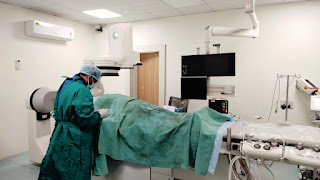I have been receiving calls from my patients regarding whether they should or can take COVID-19 vaccines.
All individuals who are eligible for vaccine administration as per Govt. guidelines and vaccine specific guidelines must receive these vaccines.
One frequently asked question is whether patients on anti-platelets and anticoagulants (Commonly called blood thinners) can take these vaccines?
The issue with blood thinners is that there is some possibility of minor bleeding from vaccine administration site and formation of intramuscular hematoma. However such risk is minimal and no events of any major bleeding have been reported. Hence patients taking anti-platelets medications can take these vaccines.
In case of anticoagulants (Such as warfarin, newer anticoagulants such as Dabigatran, apixaban etc) It is recommended that patients must report whether there are any recent bleeding episodes and consult their doctors before receiving these vaccines.
Patients taking warfarin should check their INR and if it is more than 3 or if there are any recent bleeding episodes they must consult their doctors before taking vaccine.
In all these cases adequate pressure should be maintained over vaccine administration site for sufficient duration to check whether there is any oozing or swelling. Generally this will be taken care by vaccine administrators.
If you have any doubts, it is always good to talk to your doctor.
Dr. Vaibhav Yawalkar
MD Medicine, DM Cardiology
Consultant Cardiologist



